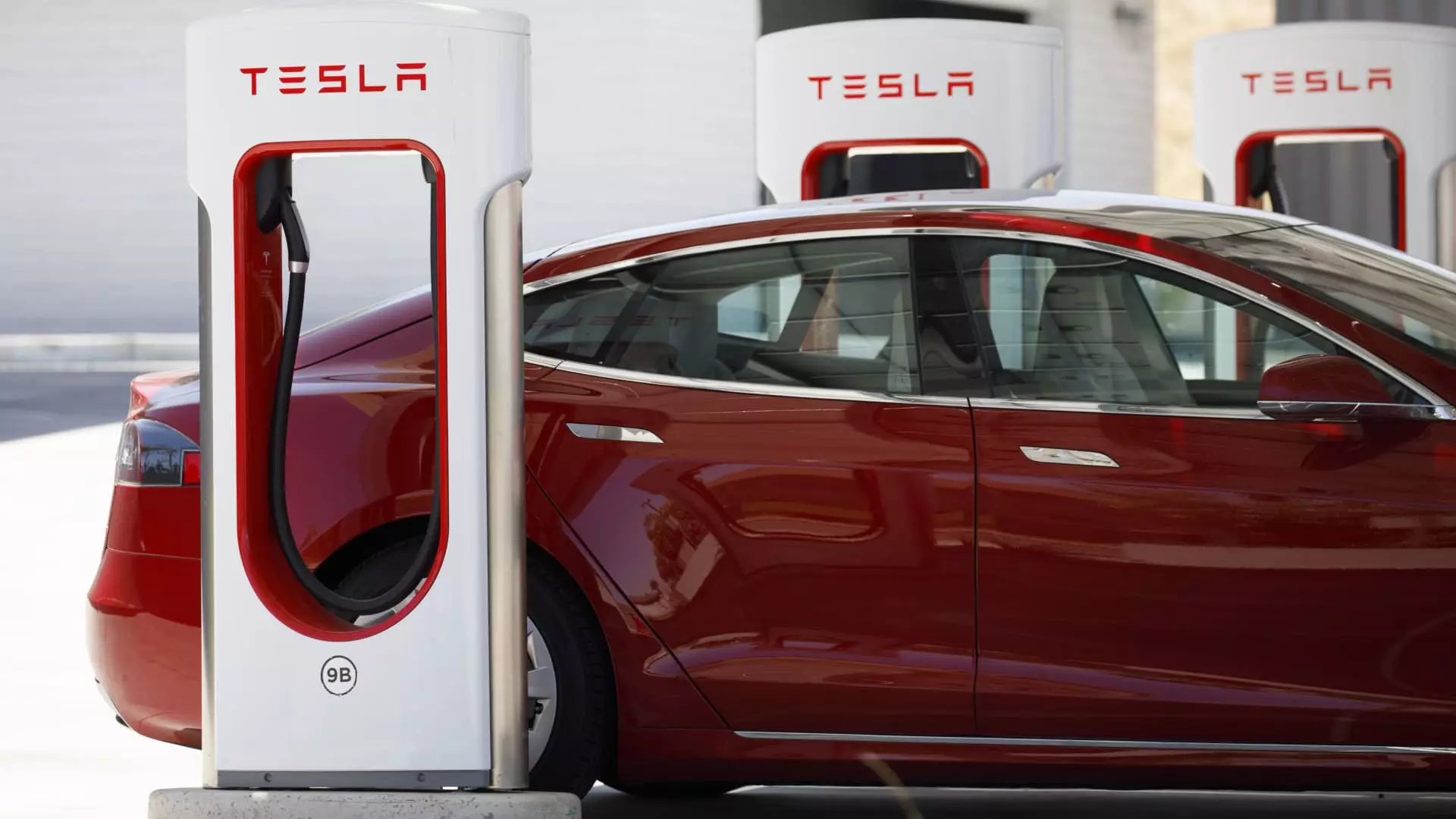Shares of electric vehicle makers and Tesla’s Asia suppliers took a significant hit on Thursday as the EV manufacturer failed to meet fourth-quarter revenue and profit targets and issued a warning of slower sales this year. The news sent shockwaves throughout the industry, leaving investors concerned about Tesla’s future prospects and the overall health of the electric vehicle market.
During an investor presentation, Tesla announced that vehicle volume growth in 2024 “may be notably lower” than the previous year’s growth rate. This unexpected setback comes as Tesla focuses on launching its highly anticipated “next-generation vehicle” in Texas. The news raised doubts among investors and led to a sharp decline in the company’s stock price.
The negative sentiment surrounding Tesla’s disappointing results has had a ripple effect on its suppliers in Asia. South Korean display manufacturer LG Display, responsible for supplying car displays for Tesla’s popular Model 3, saw its stock fall by over 4%. Battery suppliers also experienced a slump, with LG Energy Solution dropping 3.8% and Samsung SDI and Panasonic Holdings both declining around 2%.
Rivals in Asia Also Suffer
Rival electric vehicle makers in Asia, such as BYD, also experienced significant drops in their stock prices. BYD, which surpassed Tesla as the world’s top-selling EV maker in the fourth quarter of 2023, fell by approximately 2%. While BYD reported sales of about 526,000 vehicles for the quarter, compared to Tesla’s figure of about 484,000, Tesla remained the leading seller of EVs on an annual basis. Tesla delivered over 1.8 million vehicles to customers in the year ending December 2023, while BYD’s figure stood at just under 1.6 million.
The repercussions of Tesla’s disappointing results extended beyond the company itself, affecting the entire electric vehicle industry. Other prominent EV makers, such as Nio, Xpeng, and Li Auto, all experienced significant losses on the Hang Seng index. Nio plunged over 7%, while Xpeng lost 6.05% and Li Auto fell by 4.47% during early trading.
As a bellwether for the electric vehicle industry, Tesla’s performance often sets the tone for the market. Consequently, its disappointing results have caused concerns among investors and industry insiders alike. Tesla suppliers also suffered from the company’s lackluster performance, while other Asian EV makers saw their stock prices plummet due to Tesla’s pessimistic production outlook for the year.
Tesla’s fourth-quarter revenue increased by a modest 3%, reaching $25.17 billion. However, this figure fell short of the $25.6 billion expected by financial experts. Earnings per share for the same period came in at 71 cents, missing the projected 74 cents. While net income for the fourth quarter more than doubled to $7.9 billion due to a one-time noncash tax benefit, the figures were higher than the $3.7 billion recorded in the same period the previous year.
Tesla’s disappointing results have sent shockwaves through the electric vehicle industry, impacting not only the company itself but also its suppliers and competitors. The industry will be closely watching Tesla’s next moves as it works to regain investor confidence and overcome the challenges it currently faces.


Leave a Reply